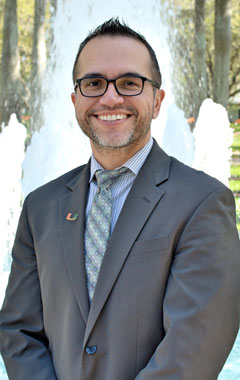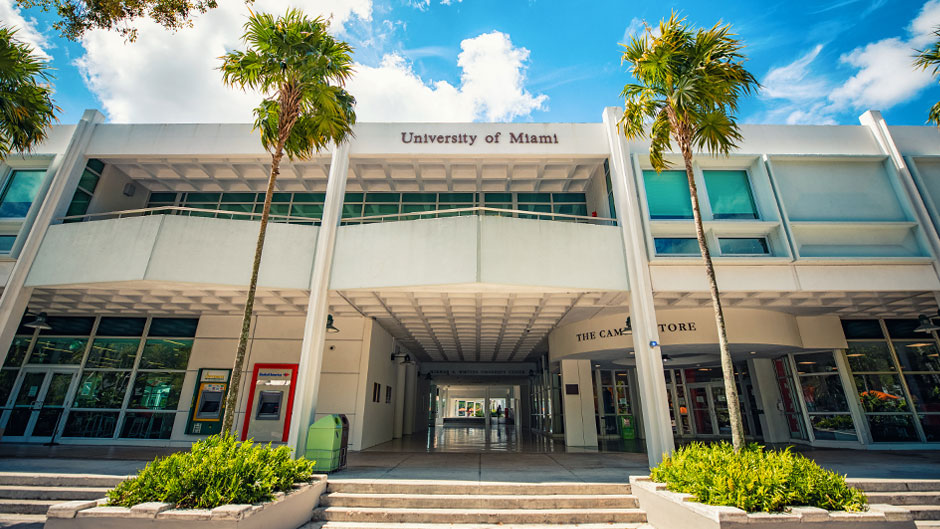As a college student who knew he wanted to pursue a master’s degree, University of Miami Graduate School Dean Willy Prado saved money to take the GRE but was disheartened by his results.
A first-generation college student and an English language learner, Prado was satisfied with his score on the math section but felt his verbal total was not a great reflection of his ability. He was still admitted to the University of Miami and went on to earn both a master’s degree and a Ph.D. in epidemiology and public health. But Prado said he doesn’t want the test to deter other potential students.
“Even as a faculty member, I always felt that the GRE was not a good predictor of student outcomes,” said Prado, who is also the University’s vice provost for faculty affairs. “Now there is a lot more evidence that shows that there are limitations to these standardized test scores, and that they are not able to predict success in a number of fields.”

That’s why Prado and graduate associate deans from each of the University’s schools and colleges encouraged the Graduate Council to consider eliminating the exam requirements, including the GRE and the GMAT, from applications.. Earlier this year, the Graduate Council and Faculty Senate approved the proposal, and now the entrance exams are no longer required for most of the Graduate School’s 216 master’s and doctoral programs. The changes do not apply to the University of Miami School of Law or the M.D. program at the Miller School of Medicine.
“Our hope is that this will pave the way for even more qualified students to advance their education at the University of Miami,” said Jeffrey Duerk, executive vice president for academic affairs and provost.
The testing requirements will be lifted this summer for students applying to many of the master’s and doctoral programs that start in January 2021. And while many of the Graduate School’s programs are adopting the new policy, it is not a mandate, Prado said, so some programs may keep the exam requirements on their applications.
“Every year we get proposals to remove the GRE from individual programs,” he said, adding that some have already eliminated the tests. “By having this new policy in place, individual graduate programs no longer have to request a waiver.”
The move to eliminate standardized tests from application requirements is happening at universities across the nation due to the difficulty of taking the tests during COVID-19 quarantine orders. However, Prado said, this move was not a reaction to the pandemic. The Graduate School has been moving toward waiving the tests for a few years, and this is a more permanent change that will be evaluated after three years, he said.
“What programs will do is they will even further enhance their holistic review of applicants,” Prado said.
With the new change, Prado hopes that more students considering higher degrees will apply to Graduate School. He also hopes it will ease some of the roadblocks for students who cannot afford the tests and for underrepresented students.. Currently, the Graduate School’s 4,300 students are composed of 67 percent white and Hispanic students, 22 percent of students who identify themselves as from Asia or the Pacific Islands, 8 percent who identify as Black, and 2 percent who identify as multiracial.
“Often times, the applicants who underperform in test scores are ethnic minorities, students of low socioeconomic status, or first-time college graduates,” he said. “By reducing this barrier, we hope and expect that we are going to increase the diversity of applicants admitted into the Graduate School and to further diversify our already highly qualified student body. This is particularly important given the cultural context we are living in.”
